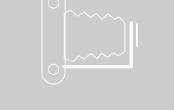
19-21 June 2000 Fuel For ThoughtWhile the field of electricity generation has the undivided attention of policymakers all over the world, the delivery system - i.e. transmission and distribution - does not seem to get in focus the same way. However, common wisdom tells us that itís not how much one generates, that counts Ė itís how much and how one delivers! Climate change concerns have put sustainable energy systems in focus. An animated debate has ensued in many countries. In this context, three common myths have emerged (A myth is a belief or subject of belief whose truth is accepted uncritically):
In (the author's) opinion, all three statements are false, and are due to an obvious lack of system-wide thinking, as demonstrated below. Dispelling the first myth! Case story: Denmark has a substantial installation of wind power, particularly in Jutland, where one soon foresees rather large excess in power. A question that naturally comes to mind is why would there be a large excess in power? The answer lies in the fact, that a typical wind power plant yields only 20-30 % of the energy produced by a thermal power plant of equivalent rating, This is because wind does not blow constantly and wind velocity varies in time. Consequently, for the same energy production the installed wind power capacity has to be 3-5 times that of a thermal plant. This means that at favorable wind conditions, substantial excess power can be generated or else generation must be curtailed! Clearly, the use of renewable sources of energy does not automatically imply a local generation and consumption pattern. In fact, in this case, the economy of investment presupposes the existence of transmission links to other regions so that excess power can be sold. Dispelling the second myth! We have seen from above that renewable energy sources do not only play a local role. Substantial installation of wind power requires comprehensive grid extensions including international interconnections. Clearly, for a high portion of renewable energy one must assume access to a large electricity market with mixed generating resources. This obviously makes large-scale systems part of a sustainable energy system! Dispelling the third myth! The projected world energy consumption in the year 2015 is estimated to be roughly 33% higher than in 1995. The corresponding projections for energy used for electricity generation show an increase by 54% during the same time span. In other words, the share of electricity in the total energy consumption is expected to grow vigorously in the 21st century. Electricity is a preferred form of energy because the higher the share of it in the end use of energy, the lower energy consumed per industrial unit output value. Electricity plays therefore an instrumental role in the development of the world's emerging economies. Energy conservation and efficient energy use cannot simply be equated to a goal of reducing the use of electricity! In fact, in a sustainable energy system, electricity penetration may increase. |


